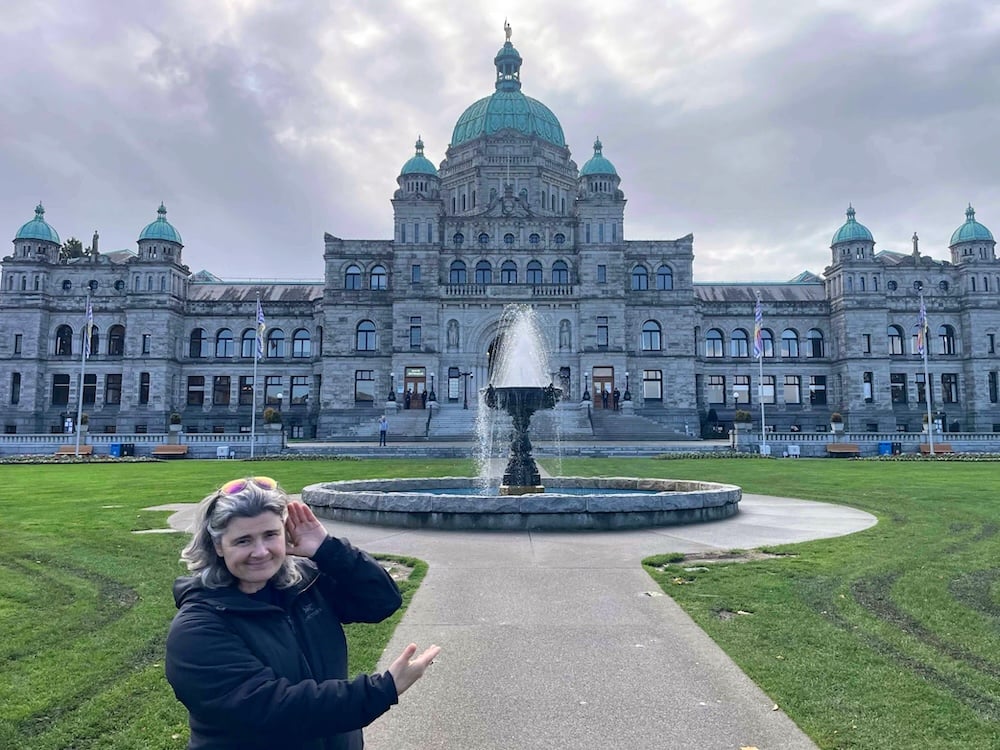Top Stories
BC Deaf Children’s Society Closes, Leaving Community in Crisis

The closure of the **Deaf Children’s Society of BC (DCS)** marks a significant loss for the province’s Deaf community. After 46 years of service, the organization announced its decision to shut down due to ongoing financial challenges and recent governmental policy changes affecting language acquisition programs for deaf, hard-of-hearing, and deafblind children.
“This is not just an organization closing,” expressed **Sarah-Anne Hrycenko**, a Deaf professional who benefitted from the society’s support as a child. “It’s the fading of an entire Deaf ecosystem that once nurtured language, identity, and leadership in the B.C. Deaf community.”
Minutes from a special general meeting held on **October 29, 2023**, indicate that the board’s decision to close was a “difficult and emotional step” influenced by years of financial strain. Staff layoffs will begin at the end of November, and the organization’s office lease will terminate on **December 31, 2023**.
Despite the emotional toll, many parents and community members recognized the inevitable fiscal realities articulated by the board. For the last decade, DCS operated as a subcontractor for the **BC Family Hearing Resource Society**, consistently facing annual financial deficits. The meeting minutes reveal that efforts to secure direct funding or increased allocations proved insufficient to maintain sustainability.
The situation became especially dire following a **May 2023** call for responses from the **Ministry of Children and Family Development** aimed at reforming early intervention services. This initiative raised hopes that DCS could receive renewed support, integrating a multilingual approach that included **American Sign Language (ASL)**.
The proposed reforms emphasized bilingual and bicultural standards, mandatory ASL fluency for staff, and new accountability measures aimed at reducing language deprivation among Deaf children. However, the provincial government recently canceled this call for responses, opting instead to extend the existing contract with the BC Family Hearing Resource Society until **March 2027**.
Hrycenko expressed outrage at the cancellation, stating, “The CFR was the Deaf community’s last hope to reverse decades of watching language and the Deaf community slowly diminish in B.C.” She emphasized the importance of sign language and Deaf culture, asserting that language access is a fundamental human right.
Each year, approximately **100 children** are born in B.C. with hearing loss, translating to about **500 children** under the age of five who require services. Hrycenko is part of a working group within the **BC Association of the Deaf**, advocating for a meeting with **Premier David Eby** and **Minister of Children and Family Development Jodie Wickens**. In their letter, they urged the government to include the Deaf community as equal partners in shaping programs that impact their children’s futures.
While Wickens has expressed a willingness to meet with the group, a spokesperson for Eby’s office did not confirm whether the premier would accommodate their request. Wickens acknowledged the importance of these services and the need for feedback from affected families.
“We’re pausing to bring everyone together for further conversations on how to move forward with some consensus,” she stated. The government’s intention to consult further has drawn frustration from members of the Deaf community. **Nigel Howard**, a sign language interpreter and adjunct professor, criticized the notion of needing additional consultations, arguing that significant effort had already gone into developing the previous reforms.
**Joanna Cannon**, a professor specializing in the education of Deaf children, emphasized the need for transparency in the government’s decision-making process. She highlighted the risks of language deprivation that children face without proper support and expressed concern over the impact of delaying reforms for two years.
Cannon stated, “Two years is a long time in a child’s life.” She and others in the community are advocating for immediate action to ensure that children have access to both ASL and spoken language, allowing them to thrive in their formative years.
As the community grapples with the implications of DCS’s closure, many voices are calling for urgent governmental support and a commitment to inclusivity in decision-making for Deaf, hard-of-hearing, and deafblind individuals. The future of these children and their access to essential language resources hangs in the balance.
-

 Science3 months ago
Science3 months agoToyoake City Proposes Daily Two-Hour Smartphone Use Limit
-

 Top Stories3 months ago
Top Stories3 months agoPedestrian Fatally Injured in Esquimalt Collision on August 14
-

 Health3 months ago
Health3 months agoB.C. Review Reveals Urgent Need for Rare-Disease Drug Reforms
-

 Technology3 months ago
Technology3 months agoDark Adventure Game “Bye Sweet Carole” Set for October Release
-

 World3 months ago
World3 months agoJimmy Lai’s Defense Challenges Charges Under National Security Law
-

 Lifestyle3 months ago
Lifestyle3 months agoVictoria’s Pop-Up Shop Shines Light on B.C.’s Wolf Cull
-

 Technology3 months ago
Technology3 months agoKonami Revives Iconic Metal Gear Solid Delta Ahead of Release
-

 Technology3 months ago
Technology3 months agoApple Expands Self-Service Repair Program to Canada
-

 Technology3 months ago
Technology3 months agoSnapmaker U1 Color 3D Printer Redefines Speed and Sustainability
-

 Technology3 months ago
Technology3 months agoAION Folding Knife: Redefining EDC Design with Premium Materials
-

 Business3 months ago
Business3 months agoGordon Murray Automotive Unveils S1 LM and Le Mans GTR at Monterey
-

 Technology3 months ago
Technology3 months agoSolve Today’s Wordle Challenge: Hints and Answer for August 19









